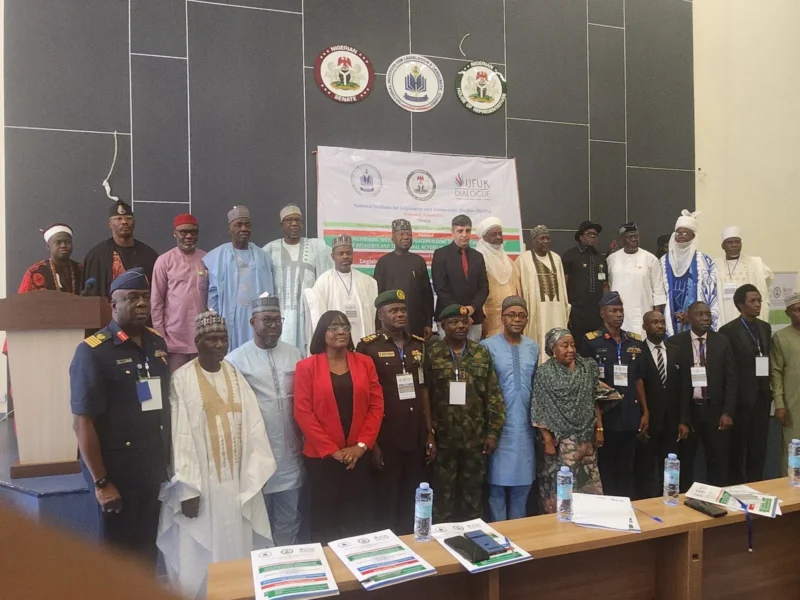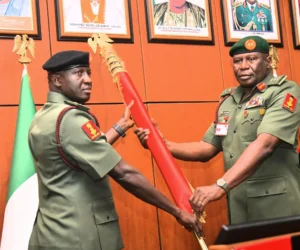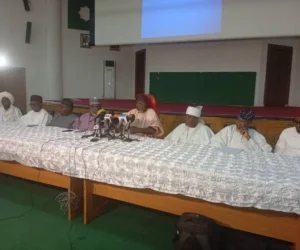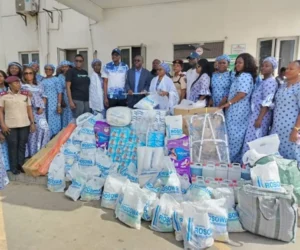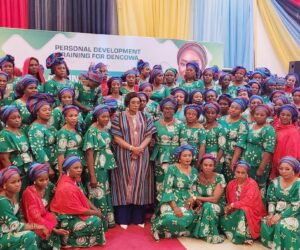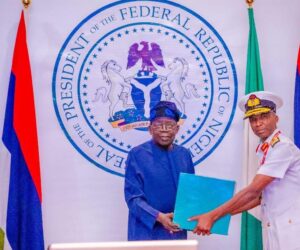By Nefishetu Yakubu
Stakeholders have called for integrating traditional rulers into Nigeria’s security framework, highlighting their potential to address land disputes, strengthen mediation processes, and enhance communal stability across vulnerable communities.
Participants at the North-Central regional security dialogue in Abuja, emphasised that empowering traditional institutions built trust, improved collaboration, and ensured timely conflict resolution, reinforcing the vital role of local leadership in sustainable peacebuilding efforts.
They noted that traditional rulers’ closeness to grassroots communities enabled early threat identification, strengthened partnerships with security agencies, and prevented escalation of disputes, thereby promoting peaceful coexistence and communal harmony nationwide.
The one-day event, themed “Strengthening Security and Peacebuilding through the Engagement of Religious and Traditional Actors in Nigeria Conflict Zones”, was organised by the National Institute for Legislative and Democratic Studies (NILDS).
Speaking at the dialogue, Kabir Adamu, Managing Director of Beacon Security and Intelligence, emphasised re-empowering traditional rulers to effectively manage local security structures, highlighting the importance of grassroots ownership for preventing instability in North-Central Nigeria.
Adamu explained that North-Central instability arose from institutional failures, not inevitability, and traditional rulers’ historical role in conflict prevention remained critical for sustainable peace.
He added that traditional rulers served as custodians of community memory and architects of early warning systems, essential for preventing violence before escalation and ensuring timely interventions by security agencies.
Adamu emphasised that rulers’ peacebuilding methods were restorative and preventative, arguing that local ownership of conflict resolution was essential for durable peace and reducing reliance solely on external interventions.
He urged governments to depoliticise appointments and funding of traditional rulers to preserve their moral authority, protecting them from political interference and ensuring they could execute duties with credibility and impartiality.
Speaking for traditional rulers, Emir of Wase, Mohammad Haruna, lamented political actors increasingly assuming responsibilities historically entrusted to rulers, preventing them from exercising divinely granted authority essential for community governance.
The Emir called for urgent measures to address insecurity, advocating for the review of failed strategies and reinstatement of traditional institutions to effectively restore law, order, and social cohesion within communities.
He emphasised that traditional rulers intimately knew their communities, asserting that returning security responsibilities to them would address challenges efficiently, given their understanding of residents’ needs, behaviours, and local dynamics.
The Emir appealed for Muslim and Christian communities to unite, noting that insecurity affected all tribes and religions, requiring collective action transcending religious, ethnic, and political divides to restore peace nationwide.
NILDS Director-General Prof. Abubakar Sulaiman, in his welcome address, highlighted traditional and religious institutions’ strategic role amid heightened insecurity, stressing their historical importance in mediation, social cohesion, and sustaining public trust.
Sulaiman emphasised that security agencies alone could not ensure lasting peace amid insurgency, banditry, communal clashes, and separatist movements, underscoring the complementary role of traditional and religious leaders in stabilising affected regions.
He added that traditional and religious leaders safeguard values and moral authority, making their historical roles in mediation and community cohesion indispensable for effective conflict resolution and sustainable peacebuilding.
Sulaiman called for policies integrating traditional and religious leadership into national security structures, aiming to strengthen collaborative responses, improve community-level interventions, and address Nigeria’s escalating security challenges practically.
Acknowledging key partners, Sulaiman urged participants to approach discussions with patriotism and dedication, stressing that building a stable, secure nation required collective responsibility, shared commitment, and local ownership of peace initiatives.
House of Representatives Committee on Traditional Institutions Chairman, Abdulmumin Mohammed, affirmed the National Assembly’s commitment to enacting laws that strengthened Nigeria’s security architecture, supporting traditional rulers’ engagement in effective conflict prevention and resolution.
Rev. Father Sebastian Sanni, Executive Director of the Justice, Peace and Development Commission, highlighted the moral authority of traditional and religious leaders as essential for reconciliation, urging collaboration with government to enhance long-term stability.
He called for stronger partnerships between traditional institutions and government agencies to promote justice, improve peacebuilding initiatives, and ensure lasting national stability grounded in local, participatory conflict resolution approaches. (NAN)(www.nannews.ng)
Edited by Abiemwense Moru

